THE UTOPIA OF FILM
FILM AND CULTURE
John Belton, Editor
FILM AND CULTURE
A Series of Columbia University Press
John Belton, Editor
What Made Pistachio Nuts? Early Sound Comedy and the Vaudeville Aesthetic
Henry Jenkins
Showstoppers: Busby Berkeley and the Tradition of Spectacle
Martin Rubin
Projections of War: Hollywood, American Culture, and World War II
Thomas Doherty
Laughing Screaming: Modern Hollywood Horror and Comedy
William Paul
Laughing Hysterically: American Screen Comedy of the 1950s
Ed Sikov
Primitive Passions: Visuality, Sexuality, Ethnography, and Contemporary Chinese Cinema
Rey Chow
The Cinema of Max Ophuls: Magisterial Vision and the Figure of Woman
Susan M. White
Black Women as Cultural Readers
Jacqueline Bobo
Picturing Japaneseness: Monumental Style, National Identity, Japanese Film
Darrell William Davis
Attack of the Leading Ladies: Gender, Sexuality, and Spectatorship in Classic Horror Cinema
Rhona J. Berenstein
This Mad Masquerade: Stardom and Masculinity in the Jazz Age
Gaylyn Studlar
Sexual Politics and Narrative Film: Hollywood and Beyond
Robin Wood
The Sounds of Commerce: Marketing Popular Film Music
Jeff Smith
Orson Welles, Shakespeare, and Popular Culture
Michael Anderegg
Pre-Code Hollywood: Sex, Immorality, and Insurrection in American Cinema, 19301934
Thomas Doherty
Special Effects: Still in Search of Wonder
Michele Pierson
Designing Women: Cinema, Art Deco, and the Female Form
Lucy Fischer
Cold War, Cool Medium: Television, McCarthyism, and American Culture
Thomas Doherty
Katharine Hepburn: Star as Feminist
Andrew Britton
Silent Film Sound
Rick Altman
Home in Hollywood: The Imaginary Geography of Hollywood
Elisabeth Bronfen
Hollywood and the Culture Elite: How the Movies Became American
Peter Decherney
Taiwan Film Directors: A Treasure Island
Emilie Yueh-yu Yeh and Darrell William Davis
Shocking Representation: Historical Trauma, National Cinema, and the Modern Horror Film
Adam Lowenstein
China on Screen: Cinema and Nation
Chris Berry and Mary Farquhar
The New European Cinema: Redrawing the Map
Rosalind Galt
George Gallup in Hollywood
Susan Ohmer
Electric Sounds: Technological Change and the Rise of Corporate Mass Media
Steve J. Wurtzler
The Impossible David Lynch
Todd McGowan
Sentimental Fabulations, Contemporary Chinese Films: Attachment in the Age of Global Visibility
Rey Chow
Hitchcocks Romantic Irony
Richard Allen
Intelligence Work: The Politics of American Documentary
Jonathan Kahana
Eye of the Century: Film, Experience, Modernity
Francesco Casetti
Shivers Down Your Spine: Cinema, Museums, and the Immersive View
Alison Griffiths
Weimar Cinema: An Essential Guide to Classic Films of the Era
Noah Isenberg
African Film and Literature: Adapting Violence to the Screen
Lindiwe Dovey
Film, A Sound Art
Michel Chion
Film Studies: An Introduction
Ed Sikov
Hollywood Lighting from the Silent Era to Film Noir
Patrick Keating
Levinas and the Cinema of Redemption: Time, Ethics, and the Feminine
Sam B. Girgus
Counter-Archive: Film, the Everyday, and Albert Kahns Archives de la Plante
Paula Amad
Indie: An American Film Culture
Michael Z. Newman
Pretty: Film and the Decorative Image
Rosalind Galt
Film and Stereotype: A Challenge for Cinema and Theory
Jrg Schweinitz
Chinese Womens Cinema: Transnational Contexts
Edited by Lingzhen Wang
Hideous Progeny: Disability, Eugenics, and Classic Horror Cinema
Angela M. Smith
Hollywoods Copyright Wars: From Edison to the Internet
Peter Decherney
Electric Dreamland: Amusement Parks, Movies, and American Modernity
Lauren Rabinovitz
Where Film Meets Philosophy: Godard, Resnais, and Experiments in Cinematic Thinking
Hunter Vaughan
CHRISTOPHER PAVSEK
THE UTOPIA
OF FILM
CINEMA AND ITS FUTURES
IN GODARD, KLUGE, AND TAHIMIK

COLUMBIA UNIVERSITY PRESS NEW YORK
Columbia University Press
Publishers Since 1893
New YorkChichester, West Sussex
cup.columbia.edu
Copyright 2013 Columbia University Press
All rights reserved
E-ISBN 978-0-231-53081-1
The author and Columbia University Press gratefully acknowledge the support of Simon Fraser University in the publication of this book.
Library of Congress Cataloging-in-Publication Data
Pavsek, Christopher, 1964
The utopia of film : cinema and its futures in Godard, Kluge, and Tahimik / Christopher Pavsek
pages cm. (Film and culture)
Includes bibliographical references and index.
ISBN 978-0-231-16098-8 (cloth : alk. paper) ISBN 978-0-231-16099-5 (pbk. : alk. paper) ISBN 978-0-231-53081-1 (ebook)
1. Motion picturesPhilos0phy. 2. Godard, Jean Luc, 1930 Criticism and interpretation. 3. Tahimik, KidlatCriticism and interpretation. 4. Kluge, Alexander, 1932 Criticism and interpretation. I. Title.
PN1995.P353 2013
791.4301dc23 2012037591
A Columbia University Press E-book.
CUP would be pleased to hear about your reading experience with this e-book at .
Cover design: Vin Dang
Cover images: JLG / JLG, a film by Jean-Luc Godard. Production Gaumont. 1995
An earlier version of chapter 1 appeared in Discourse 28.1 (Winter 2006): 16695.
References to Internet Web sites (URLs) were accurate at the time of writing. Neither the author nor Columbia University Press is responsible for URLs that may have expired or changed since the manuscript was prepared.
For Carolyn, Sophie, and Mia,
who smile the smile that dismisses the universe
Once a possibility, always a necessity!
Rick Roderick / C. Wright Mills
Contents
My first thanks must go, of course, to the teachers I have had over the years, and above all to Fredric Jameson, who remains for me a model of intellectual ambition, generosity, and joy. I know no one so truly Galilean, in the best Brechtian sense: he cannot resist a new thought, and he has encouraged those of us lucky enough to have studied with him to happily cultivate the same weakness in ourselves. And though its been a long time, I do wish to publicly thank my teachers at Cornell: David Bathrick, Susan Buck-Morss, Sander Gilman, and Biddy Martin, who still inhabit my thoughts. My teachers at Duke, Michael Hardt, Barbara Herrnstein-Smith, Toril Moi, Ellen Risholm, James Rolleston, and Ken Surin, were inspiringand tolerant, perhaps to a fault. When I list all these people here, I realize the good fortune I have had as a student. If I can ever live up to even a small fraction of the standard this amazing cast of teachers and intellectuals has set, I will be content with my own work.
At Simon Fraser University, Martin Gotfrit was an encouraging and understanding chair of the School for the Contemporary Arts at a crucial time. Colin Browne took on some of my duties so that I could finish this manuscript. Thank you. All of my colleagues at SFU, scholars and artists alike, have been extremely supportive of my work. I also need to thank Kidlat Tahimik and Kidlat de Guia for generously making films available to me and for answering many questions.

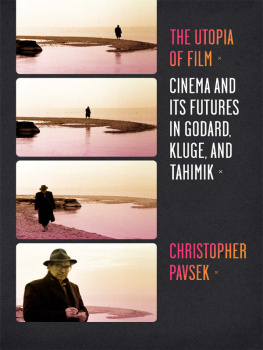
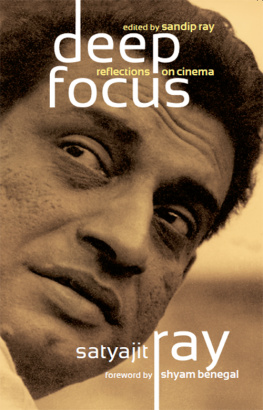

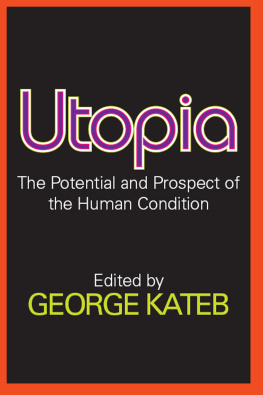
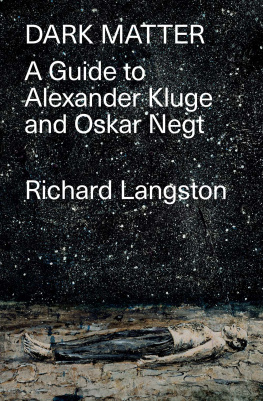
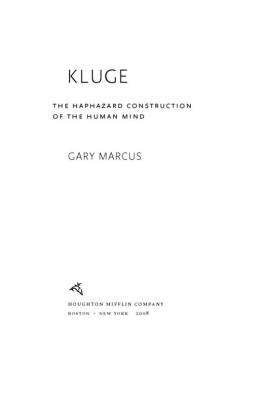
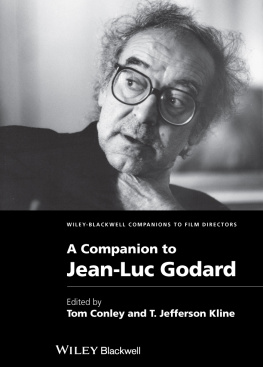
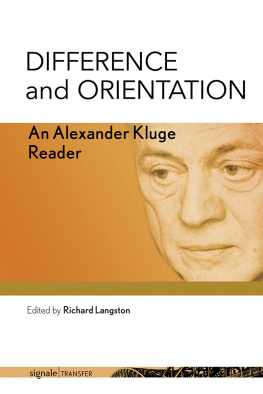
 COLUMBIA UNIVERSITY PRESS NEW YORK
COLUMBIA UNIVERSITY PRESS NEW YORK